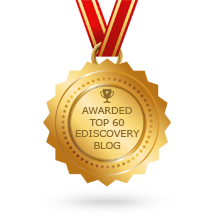Barristers can become more efficient in their practice by effectively using technology. This was a key theme that came out of the NZ Bar Association Annual Conference last Friday, which I was fortunate enough to be a speaker.
We had a number of industry experts all delivering the messages of how there is technology available that can significantly assist barristers in their work. A common theme from a number of speakers was how cloud technologies can be utilised to minimise the burden for barristers in the management of their information. These global solutions are now available for us to use at a local level in New Zealand, with no burden of infrastructure or maintenance hassles. We in New Zealand can get access to the latest available technologies, and benefit from the considerable investment these service providers continue to make in their products. We no longer need the service providers to have an office up the road to utilise their service.
My presentation largely focussed on what electronic discovery is and what barristers will have to do practically with the new discovery rules. As I endeavour to do in most of my presentations and articles, I tried to convey the importance of addressing discovery proportionately facilitated by cooperating with the other side, by opening a dialogue at an early stage.
Removing inefficient, out-dated practices
I summed up my presentation by stating that technology can be the solution, instead of being regarded as the problem. Too often many carry on working with out-dated practices, to deal with new issues created by electronic documents. These inefficient practices are adding unnecessary cost and burden to the discovery process. Just because you dealt with paper in a certain way, it doesn’t mean you treat electronic information in the same way – as the volumes of electronic information increase, it is no longer possible to carry out the same practices (unless you are happy to waste significant money !).
Judge Harvey and Gillian Coombe also addressed the delegates during the electronic discovery session. Gillian Coombe spoke about the new requirements in the rules of preservation and inaccessible data, with the key message of “be careful of what you ask for”.
Judge Harvey concluded the electronic discovery session, by delivering the message that all in the legal profession need to up skill to keep abreast of the new technology. Judge Harvey focused on how new methods like predictive coding and assessing and providing electronic information in its own native format needs to be investigated. For those that are unaccustomed as to how to do this efficiently, there is assistance available to navigate you through the complexities with technology. It is always refreshing to see a Judge with an understanding of the issues and encouraging the legal profession to proactively respond to discovery, especially the issues caused through the complexities of electronic information.
As I mentioned in my last article, there is an ever increasing number of barristers adopting new technology to assist them in their practice. Many are now starting to recognise that access to more sophisticated tools can assist them deliver more efficient, cost effective and accurate results for their clients. Some of the technology available blows you away with the capabilities of what is now possible.
Thanks to the NZ Bar Association for the opportunity for me to address their annual conference. Complimenting the messages I try and promote, the more exposure that we can provide in dealing with electronic discovery the better, especially with the introduction of the new discovery rules just around the corner.

